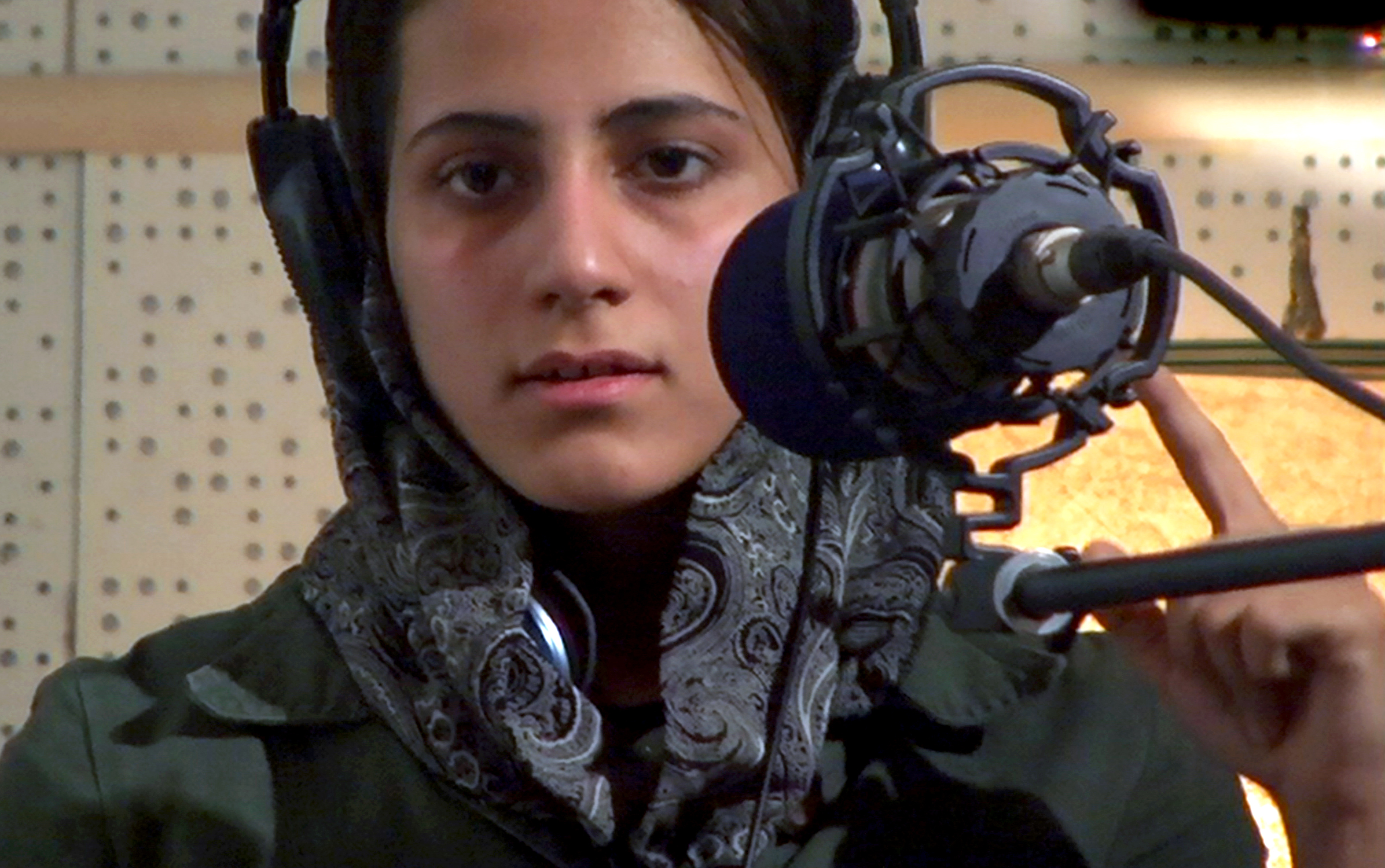Sigma Pi Sigma to screen 'The Glass House' to raise funds for group helping disadvantaged Iranian women

In an effort to raise money for the Omid Foundations, UCLA’s Sigma Pi Sigma sorority will be hosting a screening tonight of the documentary “The Glass House.”
Credit: Fictionville Studio and the Omid Foundations
“The Glass House”
Today, 6-9 p.m.
Kerckhoff Grand Salon
By Jenna Belhumeur
March 8, 2012 1:49 a.m.
The lives of four Iranian young women, who are defined by drug addiction, sexual abuse and neglect, and their paths toward empowerment are highlighted in the documentary “The Glass House.”
In an effort to raise funds for the Omid Foundations, an organization made up of three branches that strengthen the emotional and economic competencies of disadvantaged young women in Iran, Sigma Pi Sigma will screen this documentary for its event tonight.
“The Glass House” follows the interwoven narratives of these young women and the friendships they have in common. While the girls come to the same center during the day, in the evenings they return to their own lives characterized by hidden struggles with abuse or extreme poverty.
Sigma Pi Sigma, a Persian cultural sorority that works with the Office of Greek Relations, is the first Iranian sorority in the nation. One of its objectives is to empower disadvantaged young women of Middle Eastern descent.
“There’s a systematic marginalization (of women) in Iran and many Middle Eastern countries,” said fourth-year psychology student and president of Sigma Pi Sigma Manijeh Mahmoodzadeh. “Of course people who are living in poverty and abusive circumstances around the world all have difficulties to overcome, but in particular countries … women are treated more as second-class citizens, so it’s even more difficult for them to overcome those adversities.”
Sigma Pi Sigma will also sell plastic bracelets created by the Omid Foundations and traditional Iranian greeting cards made by the girls living in the shelter. There will be Persian desserts, tea and a donation envelope for those wishing to donate straight to the organization as well. The Omid Foundations are unique because they have the approval of the U.S. Treasury Department to send donations directly to Iran, something very few charities are licensed to do, said Dory Halati, director of Omid Foundation USA, one of the three entities comprising Omid Foundations.
While not directly commissioned by the Omid Foundations, the documentary was created by independent filmmaker Hamid Rahmanian, who traveled to Iran and began following the lives of some of the girls attending the Omid-e-Mehr center in Tehran. He originally planned to stay in Iran for only a few week. But after gaining access to the center by Omid Foundations founder Marjaneh Halati, he stayed for nine more months because of the captivating nature of the girls’ stories.
“The girls at Omid are the same as girls anywhere. They want the same things. … They just have the misfortune of being born at the wrong time in the wrong place,” Dory Halati said.
Halati said the Omid-e-Mehr center and the work of Omid overall are different because they look at these problems from a holistic standpoint. They address the deep traumas of these young disadvantaged women through creative writing and art. Furthermore, psychotherapy and group therapy are employed ““ methods very unusual in Iran, Halati said. With these approaches toward self-empowerment, education and training, the Omid Foundations offer the tools and support to help these women become reintegrated and succeed in a society where they are often seen as outcasts.
“We basically treat the girls as if they were our own daughters. We take them on excursions and expose them to the same things that we want our own children to be exposed to,” Halati said.
The Omid Foundations and the documentary stood out to Sigma Pi Sigma because their ideas and goals of helping empower women so closely corresponded with Sigma Pi Sigma’s own objectives, Mahmoodzadeh said.
“There are a lot of things we miss in our curriculum at UCLA,” said Robin Shirian, a second-year political science student and philanthropy chairwoman of Sigma Pi Sigma.
“We don’t get to necessarily hear about the stories of women in the Middle East, because it’s definitely overshadowed by what you hear in the media and in classes about the politics and the violence. … I think this documentary will give (UCLA students) a sense of humanity that they’re missing in their classes,” Shirian said.


